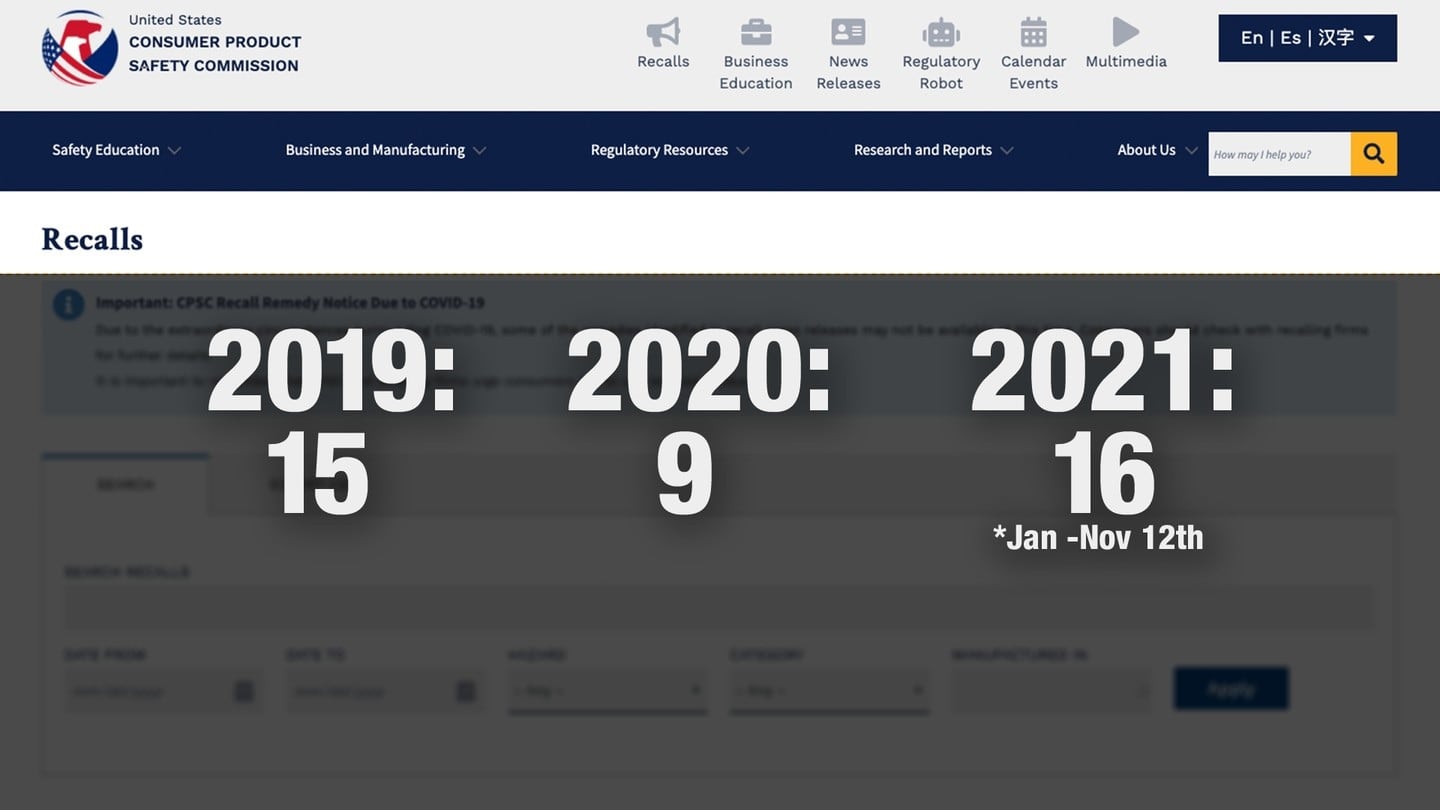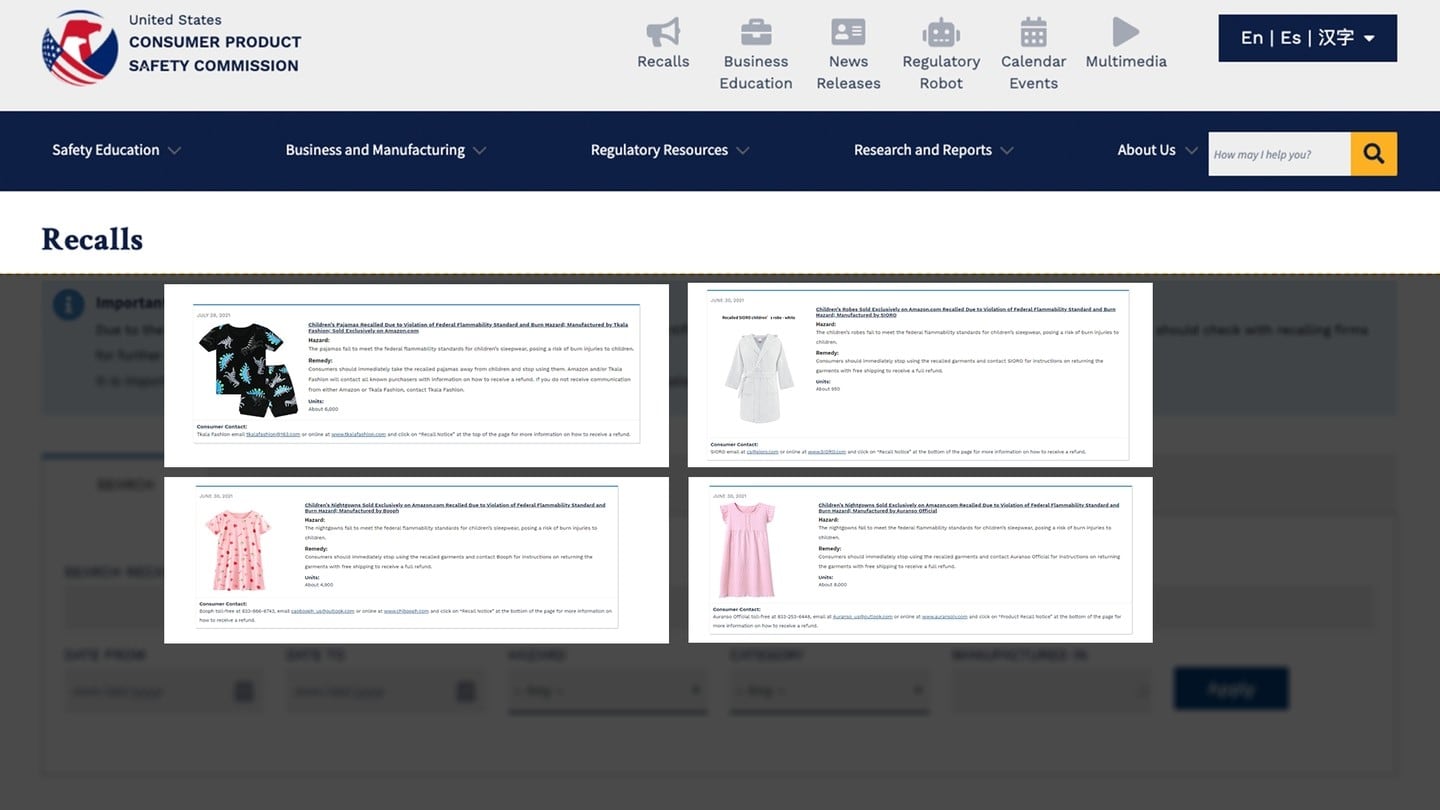When you purchase clothing for your kids, you typically don’t think about what they’re made of. But with more options and sellers available nowadays, do you really know what you’re getting?
Advocates say purchasing cheap fast fashions from online retailers might be exposing your children to potentially toxic chemicals and other dangers.
“It’s usually ‘I want this,’ and then, you know, we go on our phone and see where I can kind of get the best deal,” said Jennifer Stahl, a mom of three.
Stahl says finding affordable, yet decent clothing is key for her family. She said her three children hit growth spurts all at different times, so she’s always looking for news things. Stahl found herself shopping for the name brands, but also looks to clothing websites like Shein and Amazon.
“Some of these dresses are $18, which is — it’s a huge difference,” Stahl said while looking for Christmas dresses for her 6-year-old daughter on Shein.com.
There have been several government recalls involving children’s clothes and shoes over the past three years. Some involved brick-and-mortar stores like Target and JCPenney, but more involved online retailers like Amazon. Most recalls involved choking hazards, harmful chemicals like lead or burn risks.
During this year alone from January to mid-November, Amazon recalled four pairs of children’s pajamas sold exclusively on their website. That was the most out of any company for one year. The recall stated these products did not meet federal flammability standards, posing a burn risk to children.
The Consumer Product Safety Commission (CPSC) declined our request for an interview but told us federal flammability standards are stricter for children’s clothes.
Stahl said she was surprised to hear about the recalls. “I didn’t realize some of the things that they were putting in,” she said.
The nonprofit Green America is advocating for fashion brands and retailers to publish their chemical management efforts. They produced a Toxic Textiles Report in 2019 revealing that 43 million tons of chemicals are used in production each year. An update this year looked at how brands and online retailers are doing in protecting consumers.
Green America Labor Justice campaigns director Charlotte Tate says the clothing industry lacks transparency, making it hard for consumers to find lists of chemicals that companies use in their clothes.
“Amazon came out at the bottom of our scorecard,” said Tate. “They don’t have a public chemical management policy for apparel, so it’d be really hard for a consumer who wants to know what’s in their clothing to figure it out.”
Their recent report looked to see if retailers and brands are sharing restricted substance lists — lists that limit what chemicals can be present in clothing. They also look to see if a similar list is available for the manufacturing process.
“We found that largely brands were doing better than retailers and that there has been progress since 2019 in the industry,” said Tate. “There is an increase in transparency, but there are still some laggards in both categories.”
Amazon and Shein were asked for comment regarding the recent recalls they’ve had this year, along with concerns of toxic chemicals. Shein had two sets of pajamas recalled this year and released the following answers:
Shein Statement:
What is SHEIN doing to make sure that items sold on your platform are safe and following federal regulations?
SHEIN sources and sells fashion products under its brand as well as those from third-party suppliers. We take quality issues very seriously and remove items deemed unsafe and do not source from suppliers of such items until this issue is resolved.
How can parents trust that the children’s products you’re selling which often tend to be manufactured overseas are adhering to these regulations?
Supporting our supply chain partners is a focus for us. We invest heavily in training, technologies, as well as other programs to help our suppliers. These programs can also help ensure our suppliers adhere to the highest standards of quality control and labor practice.
SHEIN might be the platform but does a supplier have to show you proof? Or does your company test these products before they are listed?
Suppliers are required to obtain a hazardous waste license and share details of their disposal plan to ensure the entire materials handling process is traceable and accessible for third-party audits.
Some children products recalled, have been shown to cause allergic reaction or use heavy metals such as lead or PFA’s -- What are you doing to ensure the products sold on your platform is not using these products?
Upon learning of CPSC’s recall, we immediately removed these items from our online site and started an investigation with the suppliers.
An Amazon spokesperson released the following statement when we asked the same questions listed above:
“Safety is a top priority at Amazon, and we have developed industry-leading tools to prevent unsafe or non-compliant products from being listed in our stores. Amazon requires that selling partners provide compliance testing and documentation from Consumer Product Safety Commission (CPSC)-accepted labs for all children’s sleepwear sold in our store. When we learn of a product recall, we immediately remove all impacted products from our store and notify customers directly via email. For the products in question, once CPSC informed Amazon about potential safety concerns we removed the items from our store prior to the announced recall. We want customers to shop with confidence, and if ever a customer has a concern, they can contact customer service and we will investigate.”
Download the FREE Boston 25 News app for breaking news alerts.
Follow Boston 25 News on Facebook and Twitter. | Watch Boston 25 News NOW
©2021 Cox Media Group









